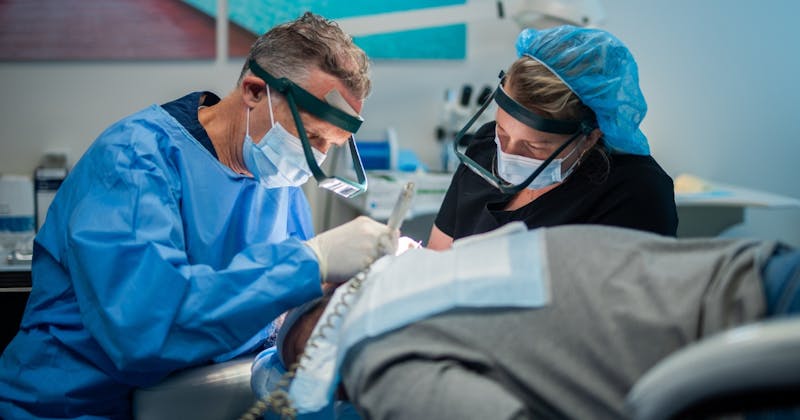Rooted in Results Let’s Get Growing
Hair loss is a symptom. We begin every journey by finding the cause, so your treatment plan isn’t just hopeful—it’s strategic, personalized, and proven to work.
Contact Our Team
Hair loss affects millions of people worldwide, but luckily the latest advancements in hair transplants continue to offer the most effective and permanent solutions. However, before taking this journey, one question arises for many: Is a hair transplant painful?
The general consensus is that while the hair transplant procedure may not be painful per se, some people may feel mild to moderate discomfort. While everyone’s tolerance level is different, rest assured we do all we can to minimize discomfort here at Northeast Hair Restoration. We’ll do our best to walk you through the process and let you know exactly what to expect.
We spoke with Steven Matteo, Hair Transplant Coordinator at Northeast Hair, to address the question of hair transplant pain. He has first-hand experience because he recently underwent a no-shave FUE hair transplant. You can read about his personal experience here.
After undergoing a traditional procedure 10 years ago, Steven opted for the no-shave FUE method this time around because it does not involve shaving the area and it brings significantly shorter recovery times. In addition, the fact that the procedure immediately conceals the donor area makes it much less obvious to others that you had a hair transplant. This discretion is what drew him to this type of transplant.
In preparation for your hair transplant, your doctor will numb the area with a local anesthetic such as Lidocaine. If anything, Steven says, the injection of the numbing agent is when he felt the most discomfort. However, once that kicks in, you can expect pressure as the transplant proceeds, not necessarily pain. This is sort of like what you feel at the dentist when having a tooth drilled after Novocaine. You’re aware of someone working on you and pressure is present, but not pain.
Compared with the traditional method of using scalpels and sutures, today’s transplant technology is much more tolerable. The recovery time isn’t nearly as long, either, and reliance on prescribed, potentially-addictive, pain medications is a thing of the past. Older procedures used to take five days to recover from, with the need for sleep meds and oxycodone to manage pain.
“Modern day procedures are a walk in the park compared to that,” quips Steven. With no-shave FUE, only Tylenol is needed to alleviate discomfort as the Lidocaine wears off.
While the procedure itself should not cause pain, your scalp may feel tender and sore after the anesthetic wears off. At night, you will want to adjust your head in a position that minimizes pressure on the scalp to protect the transplanted area while sleeping.
Hair transplant pain is usually controlled with local anesthesia, but can be greatly reduced even more when the procedure is performed by a skilled surgeon.
Because the hair transplant procedure takes all day (roughly 7 a.m. to 3 p.m.), it is possible that the Lidocaine will start to wear off. In that case, simply notify the doctor and he will safely administer more. Rest assured, it won’t all wear off at once. If you start to feel more than tugging, such as pinching, this is when you may need a top-off.
After the transplant, any swelling or soreness can typically be managed with over-the-counter pain medication. Most people return to work within 24 to 48 hours, a vast improvement over older methods that could put you out of work for nearly a week.
To minimize discomfort and ensure the most successful results, it’s important to choose an experienced, reputable surgeon. Dr. Mark DiStefano, a world-renowned physician and member of our Northeast Hair Restoration surgical team, has performed more than 8,000 successful surgical hair restoration procedures. Dr. Thomas Brand, chief of surgery, was personally train by Dr. DiStefano in hair restoration.
Wondering about hair transplant pain? Worry no longer with us. We are upfront with what to expect, and the skill of our surgeons will keep discomfort to a minimum.
Our decades of experience performing successful hair restoration procedures in Boston and Worcester position us as leaders in the latest hair transplant procedures. Book your consultation today to learn if you are a good candidate for FUT or FUE transplants, and what to expect on the day of the procedure.